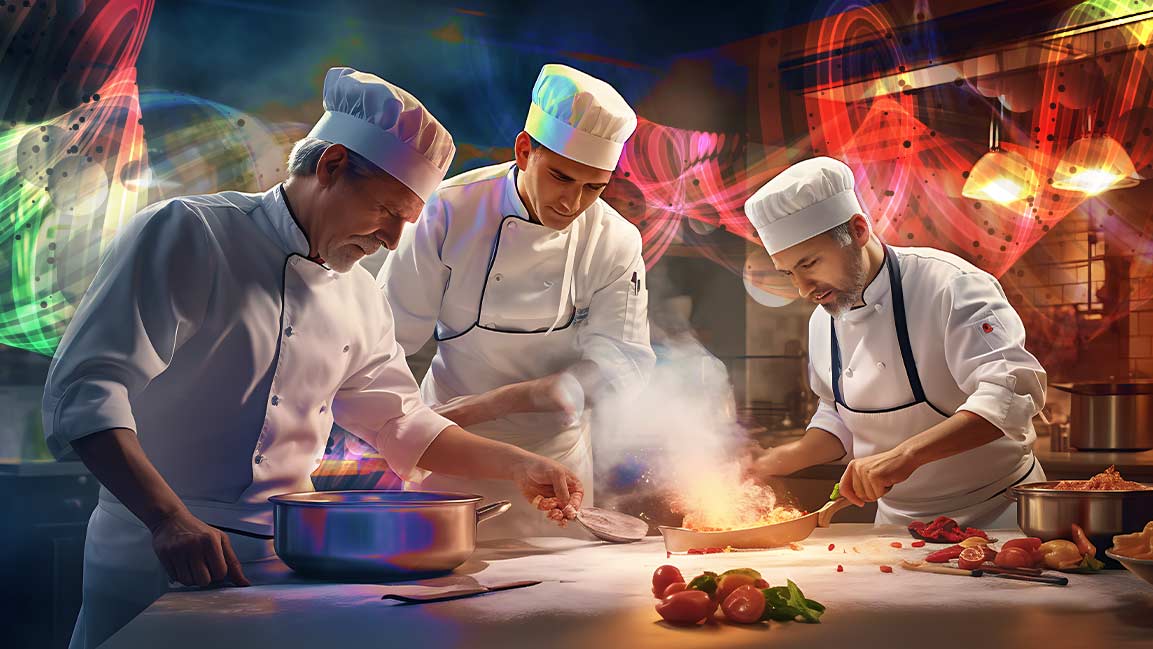- | 9:00 am
Reviving the past, savoring the future: How is the Middle East preserving its culinary heritage
In a rapidly changing culinary landscape, chefs across the Middle East strive to preserve and promote the region’s rich culinary heritage while embracing innovation

Middle Eastern cuisine is renowned for its rich flavors, vibrant spices, and unique traditions. However, preserving authenticity and cultural heritage has become crucial in rapidly changing food preferences.
Outside home, culinary institutions play a vital role in safeguarding these legacies, ensuring their continuity for future generations. Culinary schools are documenting, archiving, and teaching these recipes by offering specialized courses, workshops, and training programs. They provide aspiring chefs and enthusiasts a platform to study and learn the region’s cuisine.
“With a huge impetus on tourism and promoting ethnic cuisine in the region, culinary education has a pivotal role in standardizing and ensuring the consistency of ethnic foods for a quality culinary experience,” says Sunjeh Raja, Director & CEO of the International Centre for Culinary Arts, Dubai, and Abu Dhabi.
“Every culinary institution must provide well-structured learning in the ethnic cuisine and foster a deep respect for culinary heritage while innovating,” Raja adds.
TAKING INSPIRATION FROM TRADITIONS
Culinary institutions serve as repositories of this knowledge, preserving traditional methods and sharing them with the wider culinary community.
Emphasizing the importance of techniques, Alisha Haque-Burns, Director and Partner at SCAFA Dubai, says, “When our students progress to menu development, we encourage them to take inspiration from the culinary traditions, their home cooking, and youth. We see our students apply their learning and discover how their skills are adaptable to those experiences.”
Chefs and restaurants can also support local farmers and producers, ensuring the availability of high-quality ingredients integral to these unique cuisines. “It’s important that culinary institutions change and develop towards what chefs work with. A nostalgic ingredient can enhance an entire dish. Giving space to chefs to create helps preserve heritage in new and creative ways,” says chef Sara Aqel, founder of Dara Dining.
As she looks to open her new restaurant in Amman, Jordan, Palestinian Aqel adds, “I use many ingredients in my dishes to keep a connection between the guest and me, and cook the cuisine I enjoy.”
CULTURAL EXCHANGE
By organizing culinary events, festivals, and workshops, culinary institutions provide platforms for chefs and food enthusiasts from different backgrounds to come together, share ideas, and collaborate. This cultural exchange encourages the adaptation and fusion of Middle Eastern flavors with other cuisines, helping to expand the global appreciation for Middle Eastern culinary heritage.
Talking about what prompted her to start Mamalu Kitchen, a cookery studio, Lama Jammal Houssami says, “With three young children, I wanted to send my nanny to a cooking school to make the same heritage recipes my mom would make. When I couldn’t find a place to send her, that’s where the idea for the business came.”
Mamalu Kitchen, she adds, aims to create traditional recipes with a healthier approach for modern families. “As we don’t have the same time to dedicate to cooking as previous generations, we preserved and adapted old recipes from my mother and grandmother.”
Since its launch in 2016, the business has evolved. “We originally started with a focus on Arabic dishes but have now expanded and adapted to different cuisines and regions,” adds Houssami.
PASSED DOWN THROUGH GENERATIONS
Middle Eastern cuisine is deeply intertwined with cultural rituals and traditions. By highlighting the significance of these rituals, chefs ensure the essence and spirit of Middle Eastern cuisine.
For Zahra Abdullah, founder, owner, and creator of Zahra’s Kitchen and author of Cooking with Zahra, much of her study for her award-winning culinary creations has come not from the classroom but from her family.
“Food is my artistry, therapy, and way of connecting with people. Through my culinary journey, I have discovered that the true essence of food lies in its ability to carry the rich tapestry of our family and cultural traditions,” she says.
She adds her greatest inspiration and foundation in cooking comes from the influence of the women in her life, including her grandmother, mother, and mother-in-law.
“Their wisdom and expertise have been passed down through generations, woven into our family’s history. In the kitchen, I learned the art of patience, the importance of intuition, and the value of preserving our culinary heritage. I was taught the family recipes, secrets, and techniques that have stood the test of time and the stories behind each dish.”
Looking ahead, Abdullah says, “My culinary education is about bridging the gap between the old and the new, traditional and modern. I explore and experiment, adding a touch of innovation and creativity to the dishes that have shaped my identity.”
“The teachings from the women in my life have shaped not only my recipes but also my approach to cooking—an approach rooted in love, respect, and a deep appreciation for the stories that food can tell.”
The future of Middle Eastern cuisine lies not only in the hands of culinary institutions but also with those chefs committed to promoting cultural heritage.
The continuity and evolution of Middle Eastern cuisine can be ensured by safeguarding traditional recipes, preserving culinary techniques, supporting local farmers, fostering cultural exchange, and conserving culinary rituals.
As the culinary world navigates the complexities of globalization and changing culinary preferences, it is crucial to recognize the Middle East’s rich and diverse culinary heritage.








































